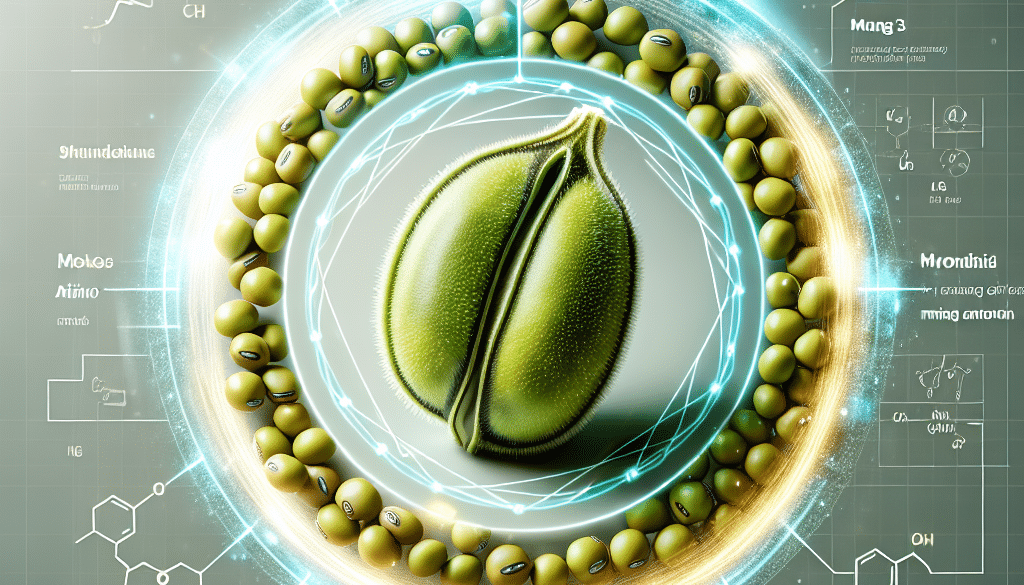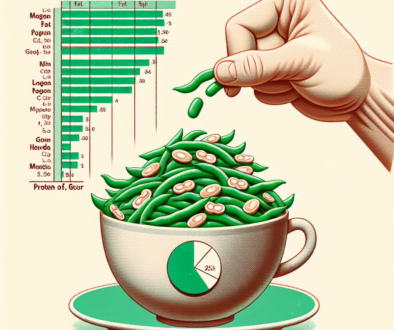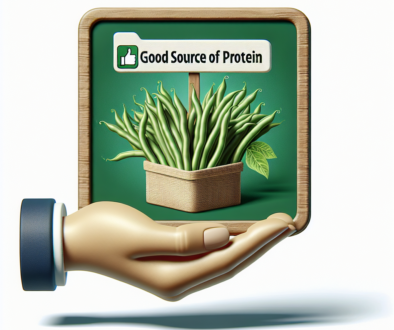Is Mung Bean Protein Healthy?
-
Table of Contents
- Mung Bean Protein: A Healthy Plant-Based Powerhouse
- What is Mung Bean Protein?
- Nutritional Profile of Mung Bean Protein
- Health Benefits of Mung Bean Protein
- Comparing Mung Bean Protein to Other Plant-Based Proteins
- Environmental Impact of Mung Bean Protein
- Incorporating Mung Bean Protein into Your Diet
- Conclusion: The Verdict on Mung Bean Protein
- Discover ETprotein’s High-Quality Mung Bean Protein
Mung Bean Protein: A Healthy Plant-Based Powerhouse

As the world becomes more health-conscious, plant-based proteins are gaining popularity due to their numerous health benefits and sustainability. Among these, mung bean protein stands out as a nutritious and versatile option. This article delves into the health aspects of mung bean protein, supported by research, examples, and statistics.
What is Mung Bean Protein?
Mung bean protein is derived from mung beans, small green legumes that have been a staple in Asian cuisines for centuries. The protein is extracted from the beans, resulting in a high-quality, plant-based protein powder that is increasingly being used as a dietary supplement and ingredient in various food products.
Nutritional Profile of Mung Bean Protein
Mung bean protein is not only rich in protein but also contains essential amino acids, vitamins, and minerals. Here’s a breakdown of its nutritional benefits:
- High Protein Content: Mung bean protein typically contains around 20-24 grams of protein per 1/4 cup serving, making it an excellent source of protein for vegetarians and vegans.
- Essential Amino Acids: It includes all nine essential amino acids, which are crucial for muscle growth, repair, and overall health.
- Fiber: Mung beans are a good source of dietary fiber, which aids in digestion and promotes a feeling of fullness.
- Vitamins and Minerals: Mung beans are rich in vitamins such as B vitamins, particularly folate, and minerals like potassium, magnesium, and iron.
- Low in Fat: Mung bean protein is low in fat, with most of the fat being polyunsaturated and monounsaturated, which are considered heart-healthy fats.
Health Benefits of Mung Bean Protein
Mung bean protein offers a range of health benefits, making it a valuable addition to any diet. Here are some of the key advantages:
- Supports Muscle Growth: The rich amino acid profile of mung bean protein helps in the synthesis of muscle proteins, making it ideal for athletes and those looking to increase muscle mass.
- Weight Management: The high protein and fiber content can help regulate appetite and reduce overall calorie intake, aiding in weight management.
- Heart Health: Studies have shown that legume consumption, including mung beans, can improve heart health by reducing cholesterol levels and blood pressure.
- Blood Sugar Control: The low glycemic index of mung beans makes their protein beneficial for blood sugar regulation, which is particularly important for individuals with diabetes.
- Digestive Health: The fiber in mung bean protein promotes healthy digestion and prevents constipation.
Comparing Mung Bean Protein to Other Plant-Based Proteins
When compared to other plant-based proteins such as soy, pea, and rice protein, mung bean protein holds its own. It has a complete amino acid profile, similar to soy, but without the common allergens associated with soy. Unlike pea protein, mung bean protein is typically easier to digest and less likely to cause bloating. Compared to rice protein, which is low in lysine, mung bean protein contains adequate amounts of this essential amino acid.
Environmental Impact of Mung Bean Protein
From an environmental perspective, mung bean protein is a sustainable choice. Mung beans require less water and land to grow compared to animal-based proteins and even some other plant-based proteins. They also fix nitrogen in the soil, reducing the need for chemical fertilizers and improving soil health.
Incorporating Mung Bean Protein into Your Diet
Adding mung bean protein to your diet is easy and can be done in various ways:
- Protein Shakes: Blend mung bean protein powder into smoothies or shakes for a quick protein boost.
- Baking: Use it as a protein-rich flour substitute in baking recipes.
- Meat Substitutes: Mung bean protein can be used to create vegetarian and vegan meat alternatives.
- Energy Bars: Include mung bean protein in homemade energy bars for a healthy snack.
Conclusion: The Verdict on Mung Bean Protein
In conclusion, mung bean protein is a healthy, nutrient-dense option that offers a complete amino acid profile, essential vitamins and minerals, and numerous health benefits. Its low allergenic potential and sustainability make it an excellent choice for those looking to improve their health while also being mindful of the environment. Whether you’re an athlete, a health enthusiast, or simply looking to add more plant-based proteins to your diet, mung bean protein is a versatile and beneficial choice.
Discover ETprotein’s High-Quality Mung Bean Protein
If you’re interested in incorporating mung bean protein into your diet, ETprotein offers a range of high-quality protein products, including mung bean protein. Their products are characterized by a neutral taste, non-GMO, allergen-free attributes, and are suitable for various industries, including nutraceuticals, pharmaceuticals, and food and beverage.
ETprotein’s commitment to quality and customer satisfaction makes them a trusted supplier for your protein needs. To learn more about their offerings or to sample their products, contact ETprotein and email sales(at)ETprotein.com today.
About ETprotein:
ETprotein, a reputable protein and L-(+)-Ergothioneine (EGT) Chinese factory manufacturer and supplier, is renowned for producing, stocking, exporting, and delivering the highest quality organic bulk vegan proteins and L-(+)-Ergothioneine. They include Organic rice protein, clear rice protein, pea protein, clear pea protein, watermelon seed protein, pumpkin seed protein, sunflower seed protein, mung bean protein, peanut protein, and L-(+)-Ergothioneine EGT Pharmaceutical grade, L-(+)-Ergothioneine EGT food grade, L-(+)-Ergothioneine EGT cosmetic grade, L-(+)-Ergothioneine EGT reference grade and L-(+)-Ergothioneine EGT standard. Their offerings, characterized by a neutral taste, non-GMO, allergen-free attributes, with L-(+)-Ergothioneine purity over 98%, 99%, cater to a diverse range of industries. They serve nutraceutical, pharmaceutical, cosmeceutical, veterinary, as well as food and beverage finished product distributors, traders, and manufacturers across Europe, USA, Canada, Australia, Thailand, Japan, Korea, Brazil, and Chile, among others.
ETprotein specialization includes exporting and delivering tailor-made protein powder and finished nutritional supplements. Their extensive product range covers sectors like Food and Beverage, Sports Nutrition, Weight Management, Dietary Supplements, Health and Wellness Products, and Infant Formula, ensuring comprehensive solutions to meet all your protein needs.
As a trusted company by leading global food and beverage brands and Fortune 500 companies, ETprotein reinforces China’s reputation in the global arena. For more information or to sample their products, please contact them and email sales(at)ETprotein.com today.












